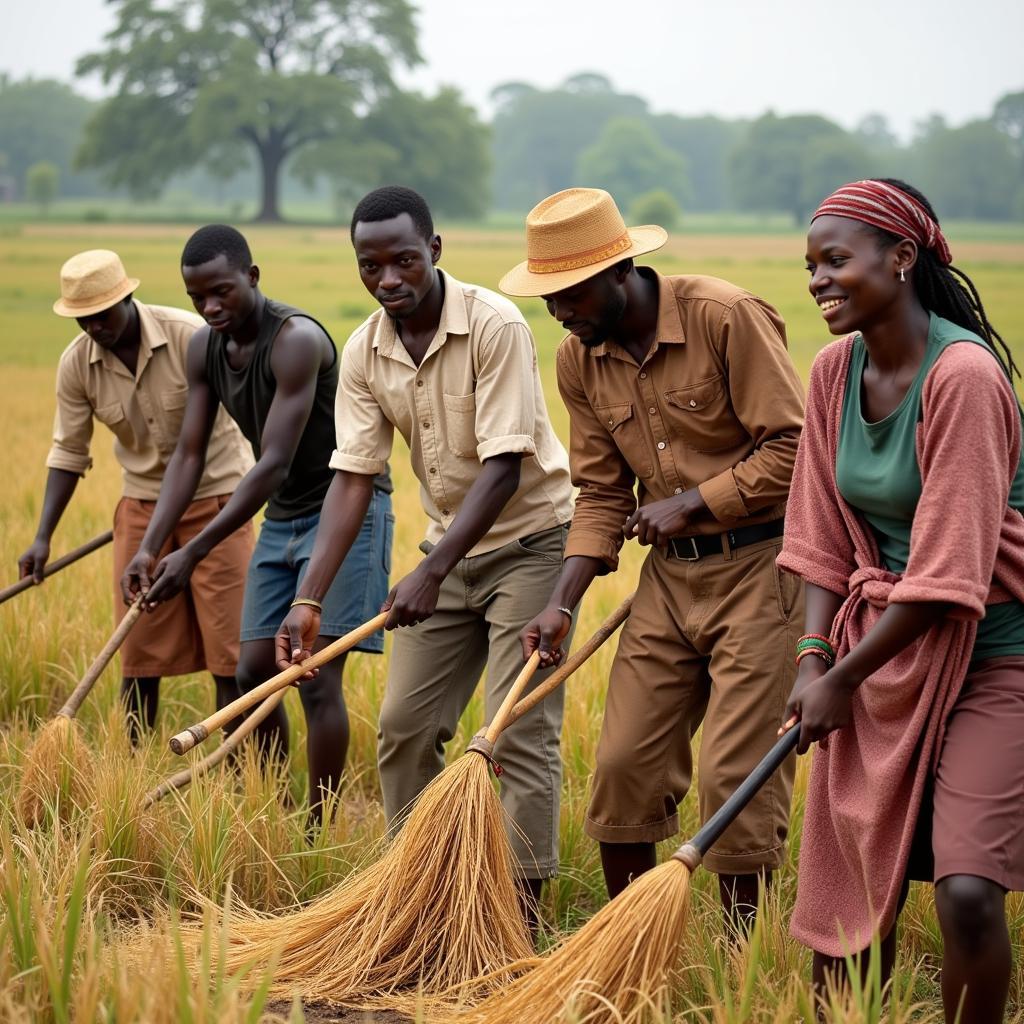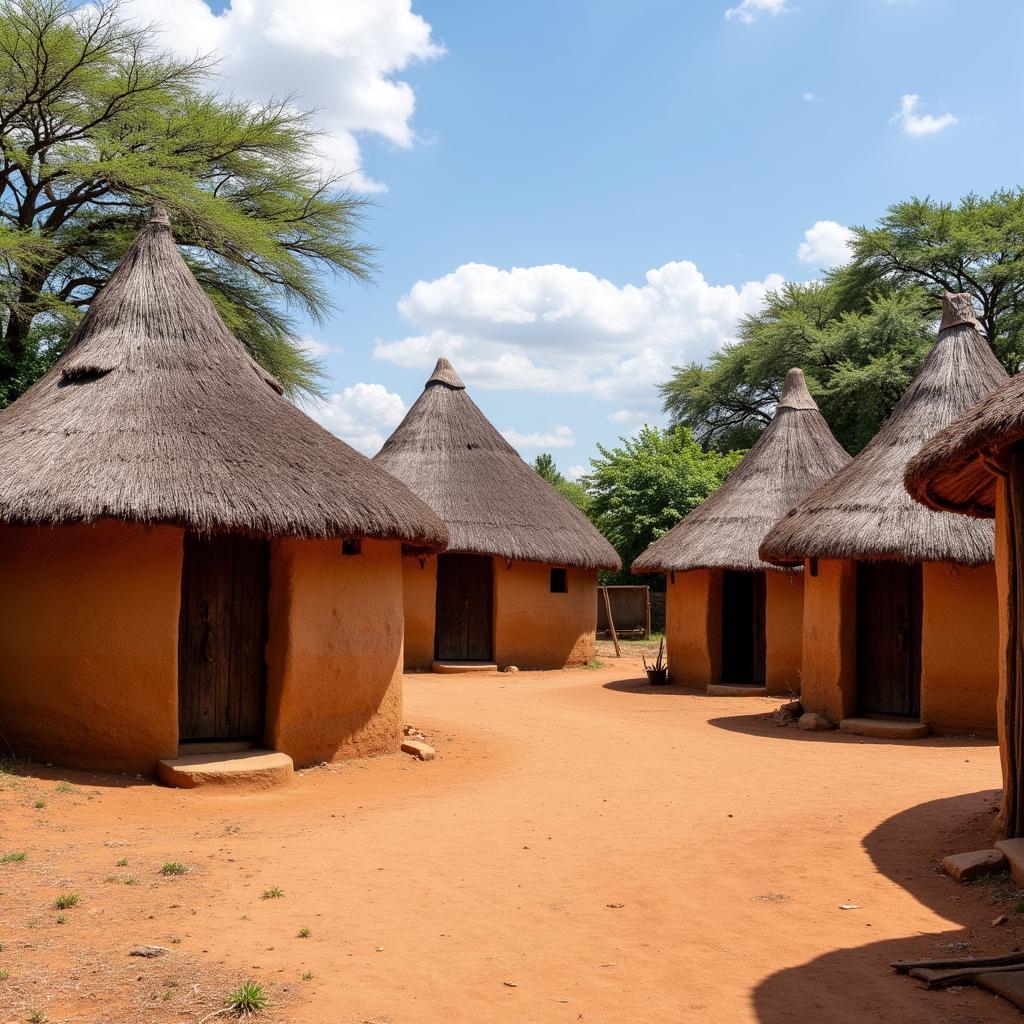Exploring the Heart of Rural Africa: Unveiling the African Hamlet
The African Hamlet, a small rural settlement, often overlooked in grand narratives of the continent, offers a profound glimpse into the heart of traditional African Life. These communities, brimming with rich history and vibrant culture, embody the essence of resilience, communal harmony, and deep connection to the land. While diverse in their specific traditions and practices, African hamlets across the continent share a common thread of communal living, agricultural heritage, and a profound respect for ancestral wisdom.
The Rhythms of Life in an African Hamlet
Life in an African hamlet moves to the rhythm of nature.  Farmers harvesting crops in a traditional African hamlet The rising sun signals the start of a day filled with agricultural pursuits, while the setting sun ushers in an evening of storytelling, music, and shared meals. This cyclical rhythm underscores the deep connection between the hamlet dwellers and their environment.
Farmers harvesting crops in a traditional African hamlet The rising sun signals the start of a day filled with agricultural pursuits, while the setting sun ushers in an evening of storytelling, music, and shared meals. This cyclical rhythm underscores the deep connection between the hamlet dwellers and their environment.
Family, both immediate and extended, forms the bedrock of hamlet life. Elders, revered for their wisdom and experience, play a crucial role in decision-making, conflict resolution, and transmitting cultural knowledge to younger generations. Children, imbued with a strong sense of community, grow up learning traditional skills, participating in communal chores, and absorbing the values of respect, cooperation, and shared responsibility.
Architecture and Design: Reflecting Cultural Identity
The architecture of an African hamlet reflects both the local climate and the cultural aesthetics of its inhabitants.  A traditional homestead in an African hamlet Houses, often built using locally sourced materials like mud, thatch, and timber, are designed to withstand the elements while blending seamlessly with the natural surroundings. The layout of the hamlet often prioritizes communal spaces, reflecting the strong emphasis on collective living.
A traditional homestead in an African hamlet Houses, often built using locally sourced materials like mud, thatch, and timber, are designed to withstand the elements while blending seamlessly with the natural surroundings. The layout of the hamlet often prioritizes communal spaces, reflecting the strong emphasis on collective living.
Sustaining Life: Agriculture and Beyond
Agriculture forms the backbone of the African hamlet’s economy. Small-scale farming, often reliant on traditional methods and rain-fed irrigation, provides sustenance for the community. Surplus produce might be sold or bartered at local markets, fostering economic exchange within and beyond the hamlet. Beyond agriculture, traditional crafts like pottery, weaving, and metalwork might also be practiced, providing additional income and showcasing the artisanal skills passed down through generations.
Facing the Future: Challenges and Opportunities
African hamlets, though deeply rooted in tradition, are not static entities. They face contemporary challenges, including climate change, limited access to healthcare and education, and the allure of urban migration. Yet, within these challenges lie opportunities for sustainable development that honors traditional knowledge while embracing innovation.
Conclusion: The Enduring Spirit of the African Hamlet
The African hamlet, with its close-knit community, deep respect for nature, and vibrant cultural traditions, offers a unique lens through which to understand the continent’s soul. By recognizing the challenges and supporting the resilience of these rural communities, we contribute to preserving a vital part of Africa’s heritage and ensuring a sustainable future for its people.



